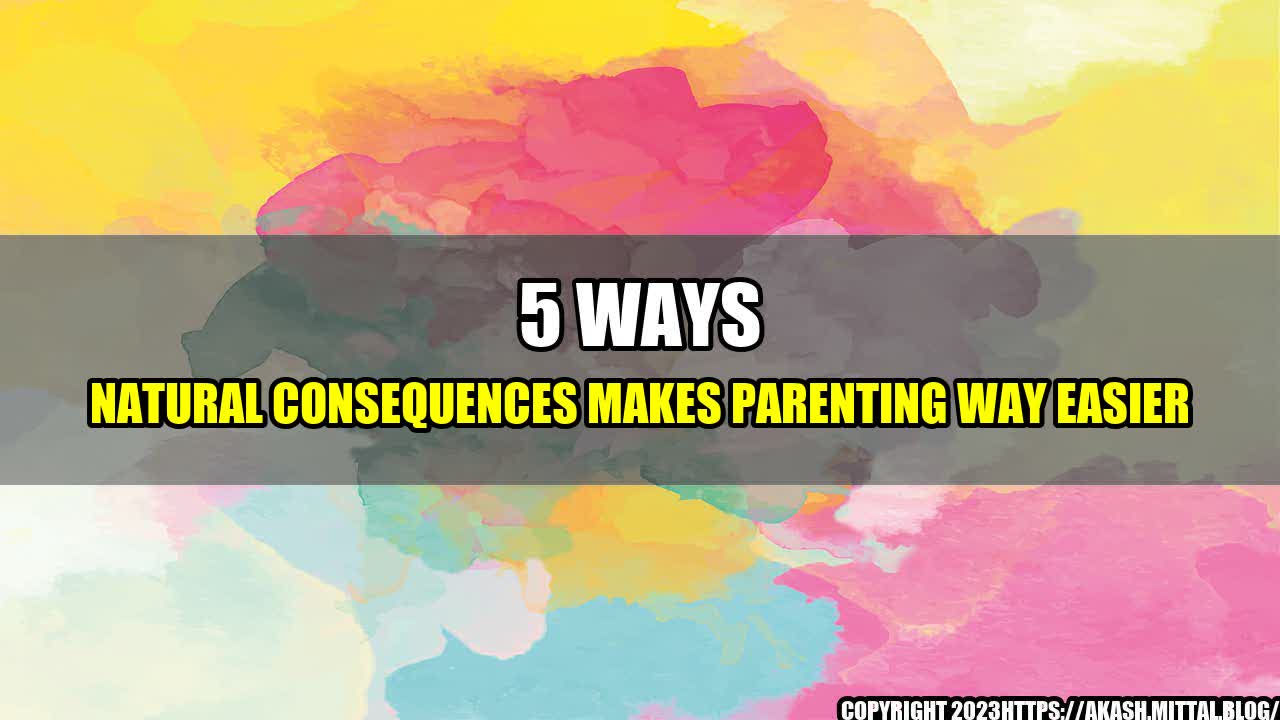
We've all been there. You're rushing to get out of the house and your child doesn't want to put on their shoes, or they won't eat their breakfast, or they're throwing a tantrum because they want to wear their favorite shirt that's still in the laundry. As a parent, it's tempting to bribe, threaten, or plead with our children to get them to comply with our wishes. But what if we took a step back and let the natural consequences of their actions guide their behavior?
Natural consequences, as opposed to punitive consequences, are the outcomes that naturally occur as a result of a person's actions or choices. For example, if your child refuses to wear a coat on a cold day, the natural consequence is that they will be cold. By allowing our children to experience the natural consequences of their actions, we help them develop a sense of responsibility, self-discipline, and empathy for others. Here are five ways natural consequences can make parenting way easier:
When we parents try to micromanage our children's behavior, we become exhausted and frustrated. We can't control every aspect of our child's life, and attempting to do so only leads to power struggles and resentment. By allowing natural consequences to guide our children's behavior, we can relax and let go of the need to control. We can trust that our child will learn from their experiences and make better choices in the future.
For example, if we insist that our child wear a coat when they don't want to, we may end up spending half an hour arguing with them, threatening them with consequences, and feeling like a failure as a parent. But if we let them go without a coat and they end up being cold, they will learn that wearing a coat is important for staying warm. They may not like it, but they will have internalized the lesson and they will be more likely to comply with our requests in the future.
When children experience the natural consequences of their actions, they learn to take responsibility for their choices. They understand that their actions have consequences, and they learn to think before they act. This is an important life skill that will serve them well in school, work, and social relationships. By teaching our children to be responsible, we are preparing them to be independent and successful adults.
For example, if our child forgets their lunch at home and we swoop in to save the day by bringing it to them at school, we are depriving them of the opportunity to learn from their mistake. If we allow them to feel the hunger pangs and embarrassment of having to ask a classmate for food, they will learn to be more responsible in the future. They may start packing their own lunch, or they may make sure to double-check their backpack before leaving the house.
When our children experience the natural consequences of their actions, they learn to empathize with others who may be affected by their behavior. They understand that their choices have an impact on the people around them, and they learn to consider the feelings and needs of others. This is an essential skill for building strong relationships and collaborating effectively in group settings.
For example, if our child breaks a toy by playing too roughly, we can allow them to feel the sadness and disappointment of their sibling or friend who owned the toy. They may feel guilty for causing harm to another person, and they may be more careful in the future. They will learn that their actions have consequences not just for themselves, but for the people they interact with.
Natural consequences are a powerful parenting tool that can help us reduce stress, teach responsibility, and promote empathy in our children. However, it's important to remember that natural consequences should not be confused with punitive consequences. We should never use natural consequences as a way to punish or shame our children. Instead, we should use natural consequences as an opportunity to guide our children's behavior, foster their independence, and help them develop a sense of accountability for their choices.
To make natural consequences work for your family, try these tips:
By following these simple steps, you can make natural consequences a natural part of your parenting toolbox.
Curated by Team Akash.Mittal.Blog
Share on Twitter Share on LinkedIn